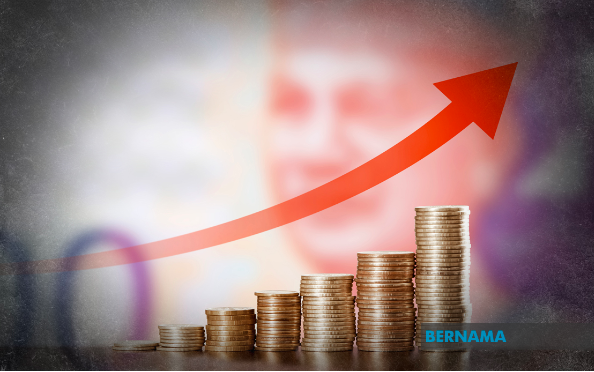SST HIKE ON SELECTED SERVICES TO SOFTEN IMPACT ON PEOPLE

The government's decision to increase the sales and service tax (SST) from 6% to 8% for selected sectors would have minimal impact on consumers, a tax expert said.
Veerinderjit Singh, Senior Tax Policy Advisor at KPMG, said while inflation was a given, the rate of increase was reasonable and wasn't too big, but the government must find ways to make sure prices of goods don't rise too much because of it.
He said the additional RM3 billion in revenue should be used to assist those who need it, and push for a more balanced budget in the coming year.
"The impact is not going to be that pronounced on consumers. It is fortunate that the service tax rate increase is only on certain types of services.
"For example, if an air-con repair bill was RM300, after taxes it would be RM324. It is not a huge amount. Food and telco bills are exempt.
"The government needs to build its tax revenue, and we have been talking about tax reforms. How do you make reforms without raising the tax rates,” he said.
Veerinderjit said the government was also right in not expanding the 8% SST to all sectors, sparing the food and beverages and telco bills.
"It is something we have to live with and we need to understand the government needs to build up its tax revenue in its coffers. So let's just accept it and move on because we all probably need to budget a bit better for many other expenses,” he said.
Veerinderjit said moving on, the government should focus on ridding taxes on taxes for transactions between businesses, granting tax cuts where necessary to lessen the impact of rising prices.
He said removing "tax on tax" will avoid the compounding effect of taxes and reduce the overall tax burden on businesses and consumers.
He said future federal budgets should have their deficits reduced, and where possible, the government should aim for a surplus budget.
"We should be working towards a surplus budget in the next few years. For a rainy day, it will be helpful for urgent purposes,” he said.
EY Malaysia tax managing partner Farah Rosley said with the extra tax money, the government must now propel the economy, at a time when the global economy is fraught with war and rising tensions.
She said extra steps should be taken so that people are not burdened with the development expenditure used to support economic activity.
Farah said while the additional tax on electricity bills are expected to raise costs, the government has given tax deductions and other benefits.
"If you look at this from an income tax perspective and indirect taxes, some larger businesses are actually getting other forms of tax incentives. Like we've got investment tax allowance for spending on capital expenditure.
"So on a balance of things, maybe the larger businesses, yes you are paying 2% extra in SST, but at the same time, they also get other tax benefits in other forms, deductions, incentives, investment tax allowances, and pioneer incentives,” she said.
The increase in SST from 6% to 8% came into effect on 1st March. The new rate of 8% will not apply for food and beverages, telecommunication services and logistics, including the delivery of goods and parking services.
